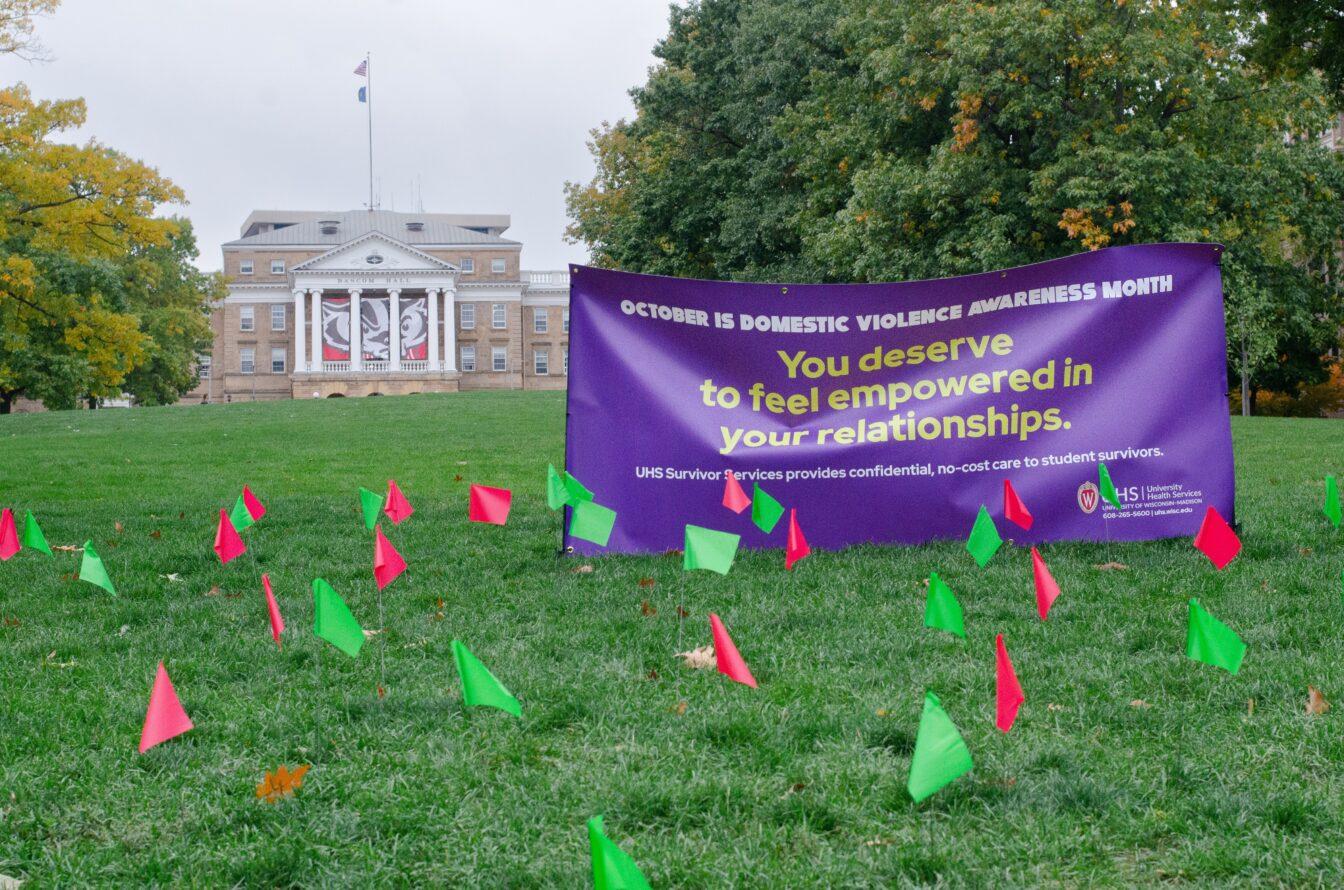CONTENT WARNING: Discussion of domestic violence. If you have experienced domestic violence, or are not sure, there are several ways to get support. View options on campus through University Health Services.
Editor’s Note: This article uses both “Intimate Partner Violence” and “Domestic Violence” terminology, per the mixed use in various interviews and sourcing. Please note there has been a recent push to use “Intimate Partner Violence” as it is more inclusive.
October is nationally recognized as Domestic Violence Awareness Month. According to the Aurora Center at the University of Minnesota, the yearly observance evolved from the 1981 Day of Unity, which was created by the National Coalition Against Domestic Violence. The original intent of the designated day was to connect advocates fighting against violence toward women and children.
Domestic abuse includes sexual or physical violence, psychological aggression and stalking of current or former intimate partners, according to the National Library of Medicine.
A 2014 report by the U.S. Bureau of Justice Statistics showed that between 2003 and 2012, 1-in-4 women and 1-in-9 men in the U.S. experienced sexual violence or physical violence from an intimate partner.
In Dane County specifically, there were 2,809 incidents of domestic abuse reported to law enforcement in 2018, according to the Wisconsin Department of Justice.
University of Wisconsin assistant director of violence prevention at University Health Services, Samantha Bowen, said 1-in-10 students at UW experience some form of dating violence while in college. Sexual assault in the context of a relationship is the most common form, Bowen said.
UW Law School clinical professor and director of the Restraining Order and Survivor Advocacy Clinic Ryan Poe-Gavlinski said there has been a recent shift in advocacy for the use of the term “intimate partner violence” as a more general category than domestic abuse.
First Nations Cultural Tour grows to meet increasing demand at UW
Poe-Gavlinski said terms, such as domestic abuse, are used to support the narrative that individuals have to live with their significant other to experience abuse.
“The idea of terming it as intimate partner violence took out the idea that folks believed you had to have a domestic relationship — meaning you had to live with someone in order for it to be considered domestic violence,” Poe-Gavlinski said. “And so the idea is that it’s any violence between partners, that’s why there’s kind of that shifted into intimate partner violence.”
Poe-Gavlinski said one of the most common misconceptions about domestic violence is that it only affects a certain demographic. Though the U.S. Bureau of Justice Statistics reports the highest rates for domestic violence are for those between the ages of 18 and 24, Poe-Gavlinski said domestic violence can happen to anyone.
“Unfortunately, domestic abuse doesn’t discriminate,” Poe-Gavlinski said. “Unfortunately, it happens with young folks, it happens with the elderly, it happens with people who are married, people who are dating, all economic social statuses, all different races, ethnicities, and sexual identities.”
At UW, victims of intimate partner violence have access to resources through UHS Survivor Services. Bowen said survivor services provides mental health and medical services to support survivors, resources to help them understand their rights and reporting options and risk assessments of potentially abusive situations. Bowen said the organization also employs advocates to help victims process their experience in a safe space.
Students should know that abuse isn’t always visible and the causes and effects of abuse can build over time, Bowen said. Furthermore, patterns of abuse are often cyclical.
“So what I mean by that is cycles of violence and tactics of abuse, followed by periods of extreme remorse and adoration — really doting on the partner,” Bowen said. “And this can be really difficult for outside observers to both spot and to understand those dynamics because they can look like either complicated relationships or up and down relationships.”
To those looking to support peers that may be in an abusive relationship, Bowen said one of the most important things friends can do is believe and normalize what healthy relationships should look like to those in harmful relationships.
“We often hear from friends who are supporting their peers in abusive relationships, like ‘Oh, why can’t they just leave? I don’t understand why they keep going back to this person,’” Bowen said.
But current research states that it takes an average of seven attempts to leave an abusive relationship, Bowen said. In fact, the act of leaving a relationship can trigger the most violent episodes of abuse.
“I want students to know that the most important thing they can do is to believe survivors of dating violence, and really normalize that you don’t deserve to be treated this way,” Bowen said.
Over the course of the month, UHS will be hosting events including a Modern Love Languages Workshop with Sex Out Loud, weekly survivor coping communities and a Domestic Violence Awareness Month Information and Resource Panel. There will also be expansions on campus violence prevention efforts through GetWIse, an online program that all first-year students must complete which helps equip students with the necessary skills to better recognize signs of dating violence and sexual violence.
To anyone experiencing domestic or intimate partner violence, Poe-Gavlinski wants those individuals to know they are not alone and realize there is help and support available.
“The main thing is that it’s not your fault that this is happening to you,” Poe-Gavlinski said. “You didn’t put yourself in this position, you didn’t ask to be a victim of domestic abuse or sexual assault. And so don’t feel that anyone that you can reach out to for services is going to judge you based on that.”
Resources regarding domestic violence:
- UHS Survivor Services: [email protected], 608-265-5600 ext 3. Self-schedule using Starfish app
- Restraining Order and Survivor Advocacy Clinic:
608-263-9574, [email protected] or request an appointment - Sexual Misconduct Resource and Response Program
- Domestic Abuse Intervention Services: 1-800-799-SAFE or text “START” to 88788
- RCC Sexual Violence Resource Center: 608-251-7273


















